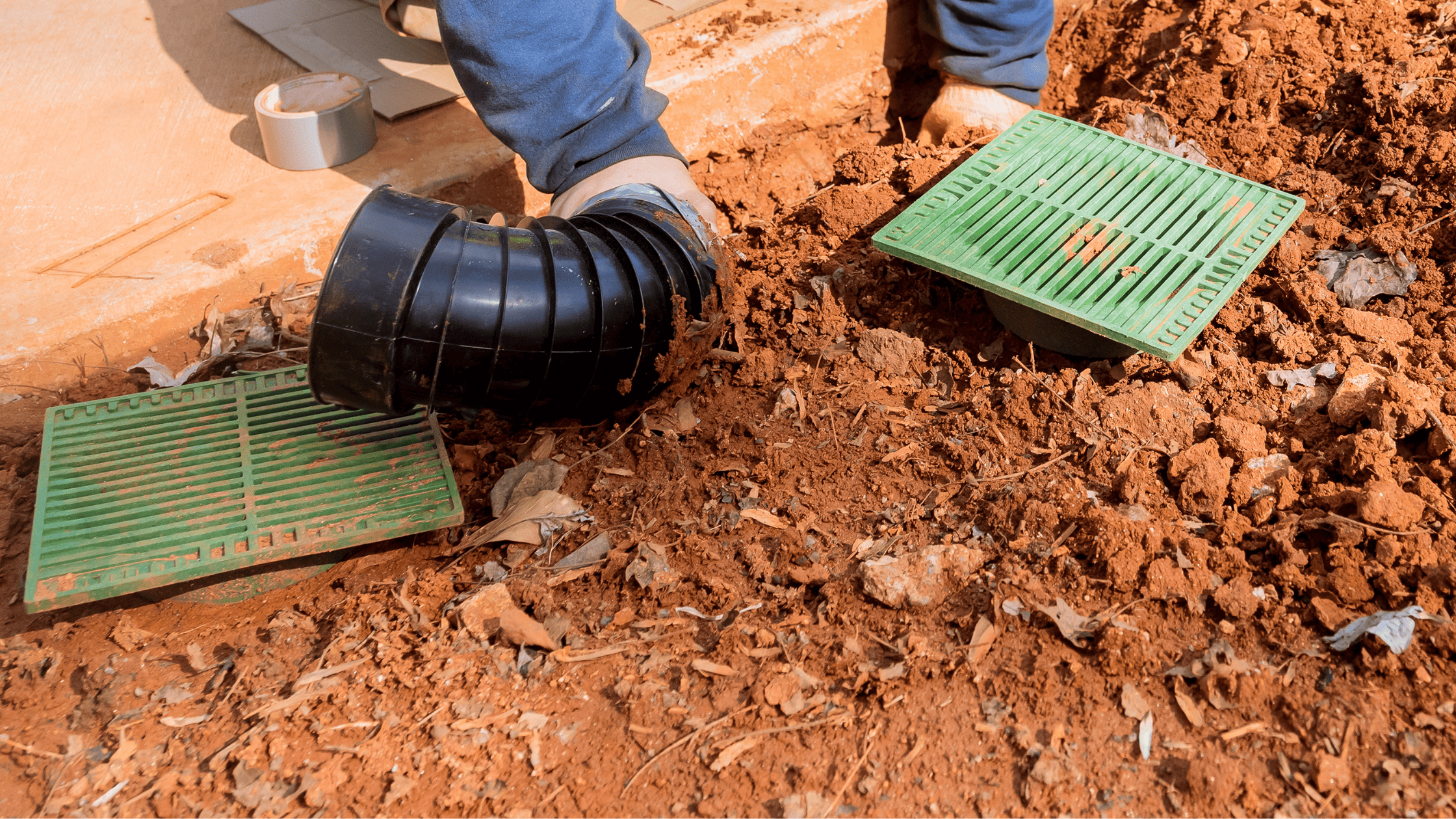
Spring Drainage Checklist: What Every Charlotte, NC Homeowner
Needs to Know to Protect Their Yard
Essential Drainage Tips for Spring to Ensure a Dry, Healthy Landscape
200+ Reviews on Google
Quality Service Every Time
Friendly, Fast & Knowledgeable
Why Spring Drainage in Charlotte, NC is Crucial for Your Yard’s Health
As the days get longer and the weather warms up, spring is the perfect time to assess your yard’s drainage system. After a long winter, your landscape may have suffered from snowmelt, heavy rains, or even standing water. If left unchecked, these drainage issues can lead to flooding, soil erosion, and poor lawn health. In this comprehensive spring drainage checklist, we’ll walk you through everything you need to know to protect your yard and keep it looking its best all season long.
Spring is an important season for preparing your yard for the heavy rains that often come with the warmer weather. Proper drainage ensures that your lawn, garden beds, and landscaping thrive while preventing water damage and erosion. Whether you’re a homeowner in Charlotte, NC, or one of the surrounding areas like Indian Trail, Matthews, or Mount Holly, addressing your drainage needs is essential. Greenworx180 is here to help with expert tips and solutions to protect your landscape this spring.
Spring Drainage Checklist:
Here are the most important steps to take this spring to ensure your yard remains dry, healthy, and free from flooding:
Inspect Yard Slope and Contour - The first step in improving drainage is making sure your yard has the right slope. Your lawn should have a slight incline away from your home’s foundation. If the slope has eroded over time, it’s essential to regrade the area. A slight slope will help direct water away from your home, preventing basement flooding and soil erosion.
Address Low Spots in the Yard - Low areas in your yard can collect standing water after rain. These pockets can cause your lawn to become waterlogged and invite pests. Fill in low spots with soil to create a more even surface. You can also consider installing a French drain or a dry creek bed to redirect the water.
Check for Clogged or Blocked Drains - Whether it’s a catch basin, drainage pipe, or gutter downspout, it’s essential to check for debris buildup. Leaves, twigs, and dirt can block drainage systems, preventing water from flowing properly. Clear out any debris to ensure your drainage systems are functioning at their best.
Install or Maintain French Drains - A French drain is an excellent solution for areas where water tends to pool. These drains redirect water away from low-lying areas and can be installed in problem zones throughout your yard. If you already have a French drain, check it for blockages or damage. If you’re unfamiliar with how to install one, Greenworx180 can provide professional help.
Improve Soil Drainage - Clay soil can become compacted over time and prevent water from draining properly. Aerating the soil in your yard helps to improve drainage and allow water to permeate more easily. Consider adding organic material such as compost to improve the structure of your soil.
Check Your Lawn’s Irrigation System - Your irrigation system can contribute to drainage problems if it’s not functioning correctly. Make sure your sprinkler heads aren’t broken and that water isn’t pooling in certain areas of your yard. If necessary, adjust your system to prevent overwatering in areas prone to standing water.
Reinstall or Maintain a Proper Drainage System - For those with more complex drainage issues, a comprehensive system may be needed. Installing a trench drain or a French drain around areas with chronic water problems can help redirect water and prevent erosion. Greenworx180 specializes in drainage solutions and can provide the right system for your yard.
Keep Your Downspouts Clear - Ensure that your downspouts are directed away from your home and not into areas of the yard that are prone to pooling. Consider extending your downspouts to push water further away from your property to prevent water buildup near your foundation.
Maintain Your Landscape to Prevent Erosion - Mulch and ground cover can help prevent soil erosion during heavy spring rains. Adding a layer of mulch around your plants and trees not only helps conserve moisture but also keeps the soil in place.
If you’re concerned about the drainage in your yard this spring, contact Greenworx180 for professional drainage solutions. Serving areas such as Charlotte, NC, Indian Trail, Mount Holly, Cornelius, and more, our team can assess your landscape and provide the best drainage solutions tailored to your needs. Don’t wait until the next storm—protect your yard today!


